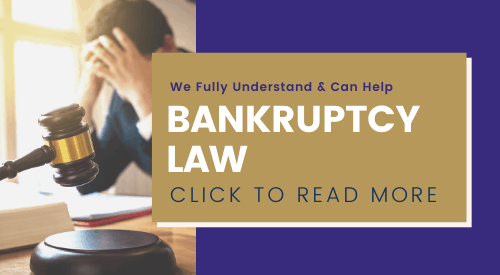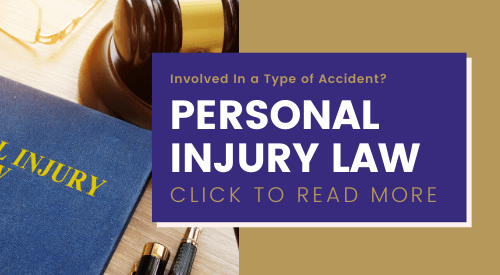Bankruptcy Lawyer Aurora IL – ASM Law – Free Consultation at 847-231-3999

Bankruptcy Lawyer Aurora IL
We Can Help You Get on the Road to Financial Recovery
For most any Illinois resident, debt is a very common factor. Certainly, this applies to individuals as well as business entities. People from all walks of life use sources of credit in order to attain their goals. For example, credit cards enable the purchasing of items like clothing or electronics.
Or a line of credit with a bank can enable people to start up a business. In either case, proper management and repayment of debt can serve a positive purpose. However, there are times when something we cannot foresee occurs and results in major financial trouble.
A job loss, a healthcare emergency, a vehicle accident or divorce can cause debts to mount fast.
Without a doubt, filing for bankruptcy is often a valid choice for a lot of people in Illinois. In fact, thousands of people – many facing similar situations to your own – file for bankruptcy every year in Illinois.
According to federal law, bankruptcy status provides you with the right to cancel or reorganize your debts. Your Bankruptcy Lawyer Aurora IL can help you gain a better understanding of your options. If filing for bankruptcy is the right solution for you, we will advise you throughout every step of the process.
Legal guidance is critical for protecting your rights and ensuring the best possible outcome for you.
To learn more about your options, schedule a free, no-obligation consultation today with a Bankruptcy Lawyer Aurora IL at our firm.
Our lawyers have considerable experience in bankruptcy cases as well as foreclosure. With our expertise at your side, you’ll gain peace of mind knowing that relief from financial debt is possible. Starting with our first consultation throughout the conclusion of your case, we take a thorough approach to each detail.
This is essential because each bankruptcy case is unique and problems can develop at any point in a case.
What to Expect After Filing – Bankruptcy Lawyer Aurora IL
There are usually a few meetings where clients meet with their Bankruptcy Lawyer Aurora IL. In most situations, additional communication can take place over email and phone. For a standard Chapter Seven or Chapter Thirteen bankruptcy filing, there are a number of documents your Bankruptcy Lawyer Aurora IL usually needs.
These include paycheck stubs, tax returns and bank statements.
In addition, lawsuits in which you’re involved and other relevant legal documents like deeds. In comparison to some other legal proceedings, bankruptcy filings don’t generally require a large volume of documents. However, you will probably need to attend a meeting of your creditors along with the bankruptcy trustee.
In nearly all Chapter Seven bankruptcies, this is the sole meeting you must attend outside of meeting with your Bankruptcy Lawyer Aurora IL. Likewise for the majority of Chapter Thirteen bankruptcy cases.
In some Chapter Thirteen cases there may be other court hearings. But unless you will be testifying at these hearings, your Bankruptcy Lawyer Aurora IL can represent you.
Bankruptcy Lawyer Aurora IL – Free Consultation at ASM Law – Call 847-231-3999
In general, the key difference among the different types of bankruptcy chapter filings is nonexempt assets and disposable income. This type of income is what remains each month once taxes are taken out and payment of living costs.
However, it’s important to note this doesn’t include payments to credit cards and forms of debt like medical costs.
At ASM Law, we have many years of experience helping people like yourself to get debt relief and protection from creditors. Talk with a Bankruptcy Lawyer Aurora IL today and learn more about your options.
A common question is: will I be able to keep my residential property if I file for bankruptcy? The answer is typically “yes” if you file for a Chapter 13 bankruptcy. In this common form of filing, you’ll need to repay some or all of your debts. Usually, this is done through a payment schedule that takes place over three to five years.
As part of that, you’ll be able to retain your home. Certainly, this depends on staying on schedule with the payment plan. Additionally, the payment plan must assure that your creditors receive as much as they would through a Chapter 7 bankruptcy.
For example, if you have real estate with a value of $10,000, your payment plan must pay your creditors at least that amount.
In a Chapter 7 filing, you’re asking a bankruptcy court to discharge many of your existing debts. In exchange for that, the bankruptcy trustee may take any of your property that is not exempt. They can sell the property and forward the proceeds directly to creditors.
State law governs what type of property is exempt. Usually, exemptions include the equity in the home and vehicles, retirement funds and some household items. For instance, furniture, clothing and appliances are typically exempt.
ASM Law – Bankruptcy Lawyer Aurora IL at 847-231-3999
Some more answers to FAQs about bankruptcy:
-Will bankruptcy allow me to keep my home if I’m facing foreclosure?
A Chapter 13 filing offers an effective way to prevent foreclosure. It enables you to catch up on late mortgage payments through a payment plan that the court approves. However, for this plan to succeed, you must have sufficient income that allows you to make mortgage payments.
These must remain on schedule while you also pay the late fees.
In a Chapter 7 filing, if there is adequate equity in your home, a bankruptcy trustee sells it to your creditors. However, this depends upon current real estate market conditions. Chapter 7 does not provide a way to get current if you’re already behind on mortgage payments.
The lender will typically obtain permission from the bankruptcy court to proceed with foreclosure. Your Bankruptcy Lawyer Aurora IL can explain what takes place with your home in a Chapter 7 filing.
You’ll certainly want to explore alternatives to bankruptcy if your main goal is to keep your home. It may be possible to talk with your lender regarding payment of arrearages. Or you may be able to receive government assistance to modify the terms of your loan.
-Is Chapter 7 bankruptcy an option if I’m unemployed and in debt?
If it’s likely you’ll incur a lot of debts sooner rather than later, it’s wise to wait before filing for Chapter 7. While bankruptcy discharges some of your debts, it does not discharge debts you incur after filing.
Since you cannot file again for eight years after a debt discharge, you’ll carry those debts for quite a while.
-Will a bankruptcy filing put an end to harassing calls from creditors?
Indeed, bankruptcy offers protection against those nonstop calls from collection agencies. However, this applies only to debt collection calls. Creditors may still contact you.
-Does bankruptcy cancel all my debts?
This depends upon which type of debts you carry. Bankruptcy is an effective means of eliminating debts like credit cards, medical bills or deficiencies that result from foreclosure. These types of debt are known as unsecured.
A Chapter 7 bankruptcy filing discharges these unsecured debts at the conclusion of your bankruptcy. With a Chapter 13 filing, you might need to pay some of your unsecured debts through a repayment schedule.
For a private, free initial consultation with a Bankruptcy Lawyer Aurora IL, call ASM Law at 847-231-3999.





